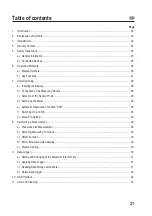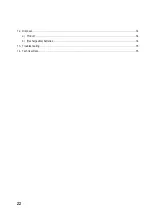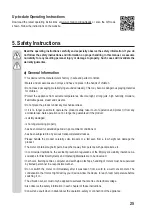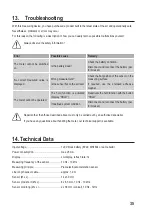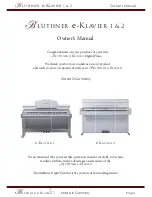
34
•
Replace the flat battery with a new alkaline one of the same type (e.g. 1604 A).
• Close the casing carefully again in the reverse order.
Do not leave flat batteries in the meter. Even batteries protected against leaking can corrode and thus
release chemicals which may be detrimental to your health or destroy the battery compartment.
Batteries and rechargeable batteries must not be short-circuited or thrown into fire. Regular batteries must
not be recharged. Danger of explosion.
Leaking or damaged batteries/rechargeable batteries may cause alkali burns if they come in contact with
the skin. Therefore, use suitable protective gloves.
A matching alkaline battery is available under order no. 652509.
12. Disposal
a) Product
Electronic devices are recyclable waste and must not be disposed of in the household waste. At the end of
its service life, dispose of the product in accordance with applicable regulatory guidelines.
Remove any inserted (rechargeable) batteries and dispose of them separately from the product.
b) (Rechargeable) batteries
You as the end user are required by law (Battery Ordinance) to return all used (rechargeable) batteries.
Disposing of them in the household waste is prohibited.
Contaminated (rechargeable) batteries are labeled with this symbol to indicate that disposal in the domestic
waste is forbidden. The designations for the heavy metals involved are: Cd = Cadmium, Hg = Mercury,
Pb = Lead (name on (rechargeable) batteries, e.g. below the trash icon on the left).
Used (rechargeable) batteries can be returned to collection points in your municipality, our stores or wherever
(rechargeable) batteries are sold.
You thus fulfill your statutory obligations and contribute to the protection of the environment.


